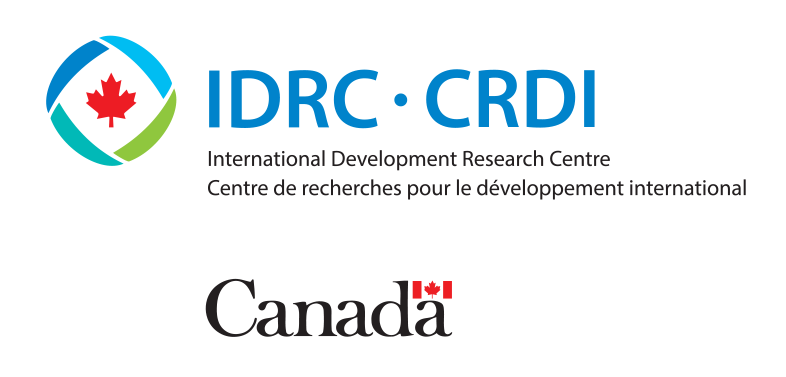About IDRC
A Crown corporation, we support leading thinkers who advance knowledge and solve practical development problems. We provide the resources, advice, and training they need to implement and share their solutions with those who need them most. In short, IDRC increases opportunities—and makes a real difference in people’s lives.
Working with our development partners, we multiply the impact of our investment and bring innovations to more people in more countries around the world. We offer fellowships and awards to nurture a new generation of development leaders.
What we do
IDRC funds research in developing countries to create lasting change on a large scale.
To make knowledge a tool for addressing pressing challenges, we
- provide developing-country researchers financial resources, advice, and training to help them find solutions to local problems.
- encourage knowledge sharing with policymakers, researchers, and communities around the world.
- foster new talent by offering fellowships and awards.
- strive to get new knowledge into the hands of those who can use it.
In doing so, we contribute to Canada’s foreign policy, complementing the work of Global Affairs Canada, and other government departments and agencies.
Resources
Displaying 6 - 10 of 324Women’s access to land in Senegal : some lessons from the baseline study
The movement to secure women’s land rights in Senegal needs to take into account the rights of all sections of the targeted communities. Hence, the cases presented testify to specific situations along with evaluations of initiatives targeting improvement of women’s land rights. For instance, much of the quota land allocated by the Delta Development and Operations Corporation (SAED) is either untapped, sold, or exploited by male members of the beneficiary women’s families.
Impact of large-scale investments on the livelihoods of small-holder farmers : policy brief
Government intervention and local level coordination of large-scale investment decisions are important components required for positive impacts on food security, nutrition and livelihoods of host communities. This policy brief reviews two case studies which illustrate the effects of foreign investment partnerships on local host communities and makes recommendations for improving government intervention at the provincial level
Implementation report on engagement with policy makers on the proposed model lands use bill
This report summarizes the implementation activities, “policy intersections” and the subsequent production of a draft model Land Use Bill (LUB, 2018) for Nigeria. This study broadly focused on land use intersections to determine appropriate policy for countering the problem of land rush/land concentration within the context of the previous Land Use Act (LUA, 1978).
Model land use bill 2019 : proposed bill for the establishment of lands use and allocation commission
A new Model Land Use Bill is proposed to address the lapses identified in the Nigerian Land Use Act (LUA, 1978), such as poor administrative system for lands, ownership, and the absence of community participation. This policy brief promotes a new land management structure for ease of business, to improve social and environmental protection, and to reduce land-grabbing by dispossession. The impact of land grabbing is one of many problems of social and environmental degradation, biodiversity loss and livelihoods impacted by deforestation.
Land forum and regional assembly members report
The meetings addressed the progress of the International Land Coalition for Africa (ILC), its strategic priorities, and as well, developed ideas on how to apply lessons learned. ILC focuses on providing specific recommendations that instigate land policies that satisfy the agenda of the African Union. The event featured forums on gender justice, and women’s land rights in relation to feminist land and community land protection.







